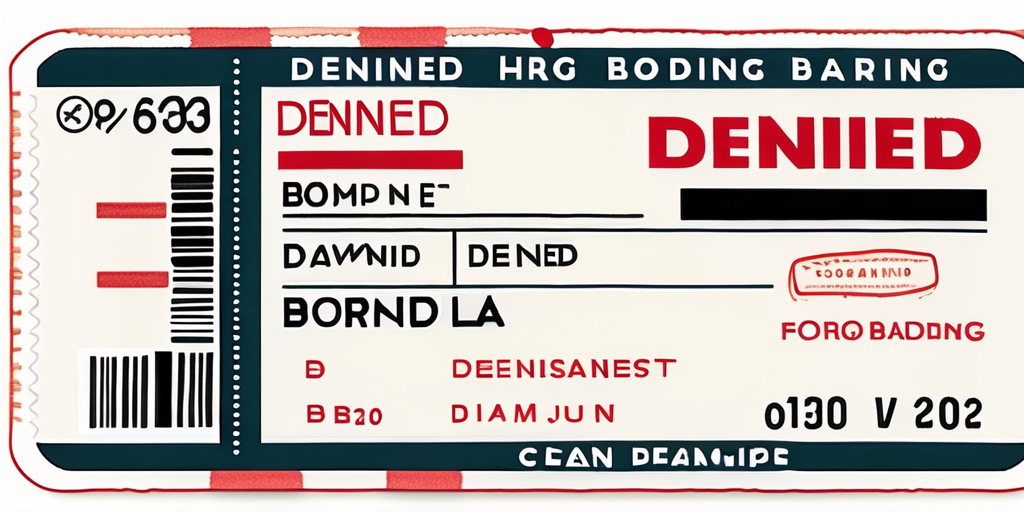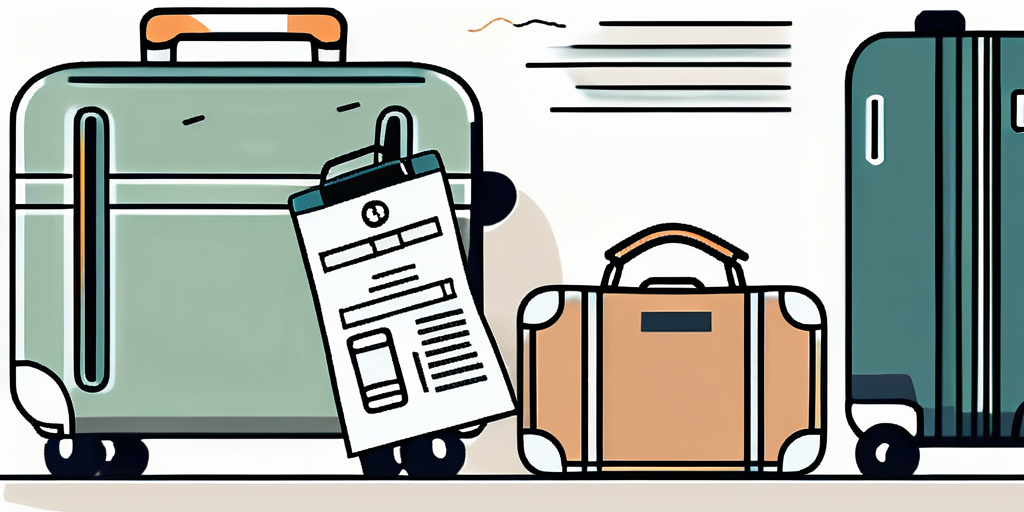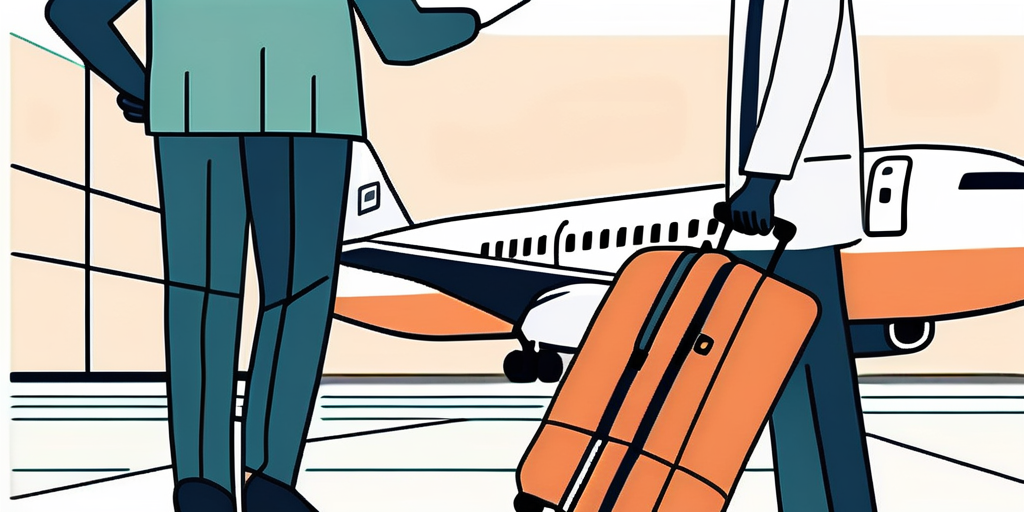Denied Boarding: What You Need to Know And Understand
Discover what denied boarding means for passengers. Get insights into regulations, airline policies, and steps to take if you're denied boarding
Being denied boarding when you have a confirmed flight can be a frustrating and stressful experience. However, it is important to stay calm and know your rights in order to navigate this situation effectively. In this article, we will explore the reasons for denied boarding, immediate steps to take, seeking compensation, and preventing future incidents.
Understanding the Reasons for Denied Boarding
Overbooking Issues
One of the main reasons for denied boarding is overbooking. Airlines often sell more tickets than there are available seats to compensate for no-show passengers. Although this practice helps airlines maximize their revenue, it can lead to passengers being involuntarily bumped off their flights.
 Overbooking can occur due to various factors, such as a higher than expected number of passengers checking in for their flights, or when airlines need to accommodate crew members on the same flight. Understanding this underlying issue can help you navigate the situation better when faced with denied boarding.
Overbooking can occur due to various factors, such as a higher than expected number of passengers checking in for their flights, or when airlines need to accommodate crew members on the same flight. Understanding this underlying issue can help you navigate the situation better when faced with denied boarding.
Imagine this scenario: You arrive at the airport, excited for your upcoming trip. You check-in, receive your boarding pass, and proceed to the gate. As you wait in anticipation, you hear an announcement over the intercom. The airline representative explains that the flight is overbooked, and they are seeking volunteers to give up their seats in exchange for compensation. You start to wonder how this could happen and why the airline didn't anticipate the number of passengers accurately.
Overbooking is a delicate balancing act for airlines. They carefully analyze historical data, passenger behavior, and other factors to determine the likelihood of no-shows. However, despite their best efforts, unexpected circumstances can arise, resulting in more passengers than available seats. While it may seem frustrating to be denied boarding, it's important to remember that airlines are legally obligated to compensate passengers who are involuntarily bumped off their flights.
Documentation Problems
Another common reason for denied boarding is documentation problems. Whether it's an expired passport, visa issues, or incorrect travel documents, airlines have the responsibility to ensure that passengers meet the necessary requirements to enter their destination country.
Double-checking your documents before traveling can help you avoid this situation. However, sometimes mistakes happen, and it's important to know how to handle it if you find yourself in this predicament.
Imagine this scenario: You've been planning a dream vacation for months. You've packed your bags, booked your accommodations, and are ready to embark on an adventure. However, as you approach the check-in counter, you realize that your passport is expired. Panic sets in as you realize that you may be denied boarding and your long-awaited vacation could be in jeopardy.
Documentation problems can be a nightmare for travelers. It's essential to ensure that your passport, visa, and any other necessary documents are up to date and valid for the duration of your trip. However, even with careful planning, unforeseen circumstances can arise. In the event that you encounter documentation issues, it's crucial to remain calm and seek assistance from the airline staff. They are trained to handle such situations and can guide you through the necessary steps to resolve the problem.
Security Concerns
In rare cases, denied boarding might occur due to security concerns. This can happen if a passenger is deemed a potential risk or threat to the safety of the flight. While this situation can be distressing, it is crucial to cooperate with the airline staff and follow their instructions.
Imagine this scenario: You're at the airport, excitedly waiting to board your flight. Suddenly, you are approached by security personnel who inform you that you have been selected for additional screening. As they thoroughly inspect your belongings and ask you questions, you can't help but feel anxious and worried about the possibility of being denied boarding.
Security concerns are taken very seriously by airlines and airport authorities. They have strict protocols in place to ensure the safety of all passengers and crew members. While it may be unsettling to be singled out for additional screening, it's important to remember that these measures are in place to protect everyone on board. Cooperating with the security personnel and following their instructions will help expedite the process and ensure a safe and secure flight.
Immediate Steps to Take When Denied Boarding
Communicating with Airline Staff
When faced with denied boarding, one of the first steps you should take is to communicate with the airline staff. Remain calm and express your frustrations or concerns politely. They may be able to provide alternative solutions, such as rebooking you on the next available flight or finding alternative routes.
If the airline staff is uncooperative or unable to resolve the issue, note down their names and positions for future reference. This information can be useful when seeking compensation or lodging a complaint.
Knowing Your Rights
Passengers who have been denied boarding are entitled to certain rights and compensation, depending on the specific circumstances. Familiarize yourself with your rights, as outlined by the airline's policies and relevant regulations, such as the Air Passenger Bill of Rights in your country.
Understanding your rights can help you advocate for yourself and ensure that you receive appropriate compensation or accommodations for the inconvenience caused.
Documenting the Incident
Whenever you encounter denied boarding, it is essential to document the incident. Take note of the date, time, and location of the incident, as well as any interactions with airline staff. Additionally, gather any relevant documentation, such as boarding passes, emails, or receipts.
Having detailed documentation can strengthen your case when seeking compensation or lodging a formal complaint. It provides a clear record of the incident and can serve as evidence if necessary.
Seeking Legal Advice
In some cases, denied boarding can result in significant inconvenience and financial loss. If you believe that your rights have been violated or that the airline has not adequately addressed your concerns, it may be beneficial to seek legal advice.
Consulting with a lawyer who specializes in aviation law can provide you with a better understanding of your legal options and the potential for pursuing a legal claim against the airline. They can guide you through the process and help you determine the best course of action.
Sharing Your Experience
Sharing your experience of being denied boarding can be a powerful way to raise awareness and hold airlines accountable for their actions. Consider sharing your story on social media platforms or online travel forums.
By sharing your experience, you can connect with others who have faced similar situations and potentially find support or advice. It also puts pressure on airlines to address the issue and improve their policies to prevent future incidents.
Seeking Compensation for Denied Boarding
Understanding Compensation Policies
Each airline has its own compensation policies for denied boarding situations. Familiarize yourself with these policies to understand what you may be entitled to. Compensation may include reimbursement for the ticket, transportation vouchers, or monetary compensation for the inconvenience caused.
 Review the airline's website or contact their customer service for specific details on their compensation policies. It's important to note that compensation may vary depending on whether the denial was voluntary or involuntary.
Review the airline's website or contact their customer service for specific details on their compensation policies. It's important to note that compensation may vary depending on whether the denial was voluntary or involuntary.
Initiating the Compensation Process
If you are entitled to compensation, it's crucial to initiate the process promptly. Contact the airline's customer service department and provide them with the necessary details and documentation related to the incident.
Be prepared to explain your situation, share your documentation, and assert your rights. The airline should guide you through the compensation process and provide you with updates on the status of your claim.
Legal Avenues for Compensation
If your attempts to seek compensation through the airline are unsuccessful, you may explore legal avenues for resolution. Consult with a lawyer specializing in aviation law to evaluate your case and pursue legal action if appropriate.
Keep in mind that pursuing legal action can be time-consuming and costly. It's advisable to exhaust all other options before taking this step.
Preventing Future Boarding Denials
Early Check-In Practices
One of the best ways to minimize the risk of denied boarding is to practice early check-in. Arriving at the airport well in advance allows you to secure your seat and address any potential issues or discrepancies with your reservation or documents.
 Early check-in also gives you more options if the flight is overbooked, as airlines usually prioritize passengers based on their check-in times.
Early check-in also gives you more options if the flight is overbooked, as airlines usually prioritize passengers based on their check-in times.
Ensuring Proper Documentation
To avoid denied boarding due to documentation problems, ensure that all your travel documents are valid and up to date before your trip. Check the expiration dates of your passport, visa, and any other required documents. It's also a good idea to make copies or take pictures of your important documents in case of loss or theft.
Research the entry requirements of your destination country to ensure you have the necessary visas, permits, or other documentation. Compliance with these requirements minimizes the chances of being denied boarding.
Staying Informed About Airline Policies
Airlines may update their policies and regulations regarding denied boarding and compensation. Stay informed about these updates to understand your rights and the steps to take if you find yourself in a similar situation in the future.
Following airlines on social media, subscribing to their newsletters, or regularly visiting their website can help you stay up to date with any policy changes or announcements.
While being denied boarding can be an inconvenience, knowing what to do and how to navigate the situation can make the experience less stressful. By understanding the reasons for denied boarding, taking immediate steps, seeking compensation, and preventing future incidents, you can handle this situation with confidence and minimize its impact on your travel plans.
Get the Compensation You Deserve with ClaimCompass
If you've been denied boarding, don't let the stress of disrupted travel plans overwhelm you. ClaimCompass is here to support you in claiming up to 600€ in compensation for flight delays, cancellations, and overbookings. We specialize in air passenger rights within Europe, and our expertise is grounded in EU Regulation 261/2004. With our no-win, no-fee policy, you have nothing to lose. Use our free compensation calculator to check your eligibility and let us handle the rest. If we succeed, we only keep a 35% commission (incl. VAT). Submit a claim today and let us help you secure the compensation you're entitled to.
